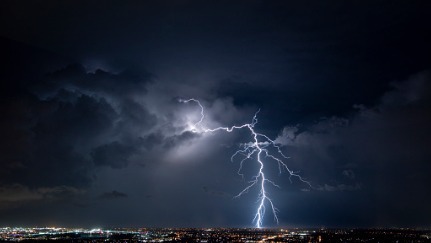Storm-related losses are on the rise

Help your customers mitigate the risks of rising storm-related losses
Among the most common and damaging of natural hazards are thunderstorms, also referred to as severe convective storms. Lightning, tornadoes, straight-line winds, hail and torrential rain from these weather events result in substantial property damage.
Research shows that advanced preparation can reduce the financial impact of storms. A study by the National Institute of Building Sciences found that for every $1 spent on hazard mitigation, $6 could be saved in future disaster costs.
Nationwide and the Insurance Institute for Business & Home Safety (IBHS) have partnered to provide you with resources to help your customers protect their homes from inclement weather.
Share new guidance to help homeowners reduce storm impact
With storm-related losses on the rise, there's never been a more important time to help your customers prepare for spring weather. Reference this article that provides the latest researched-back storm preparedness information, an infographic with tips for before, during and after a storm, and these best practices:
- Add head protection to storm kits. Researchers now recommend storing head protection, such as bike helmets or pillows, with storm kits.
- Shut windows. A common severe weather myth instructs people to open windows to "equalize pressure". The opposite is true: shutting windows strengthens the structural integrity of a home.
- Close interior doors. Keep inside doors closed to help compartmentalize pressure forces of the wind should a window or exterior door fail.
- Turn on your phone's emergency alerts. Alerts delivered by phone are more reliable than storm sirens and should be turned on in the event of a storm, even at night while sleeping.
- Consider using FORTIFIED Home™, a voluntary construction program, during renovations. Reduce weather risks by incorporating recommendations during renovations and repairs.
In addition to sharing information with your customers, you can help them prepare for storms by encouraging them to review their homeowners insurance policy. Customers will want to consider the storm forces they are most likely to experience in their area in light of their current policy selections.
Which storm forces cause the most losses?
According to the Insurance Information Institute (III), some of the most expensive and common homeowner losses related to storms are caused by:
Support you and your customers can count on
While severe storms can be unpredictable, Nationwide's support for you and your customers never wavers. Count on us to share valuable insights that may help protect your customers from nature's wrath and minimize their time to return to normal should storm-related damage occur. By sharing tips like the ones found in this article through your social media presence or via email, you could help mitigate losses.